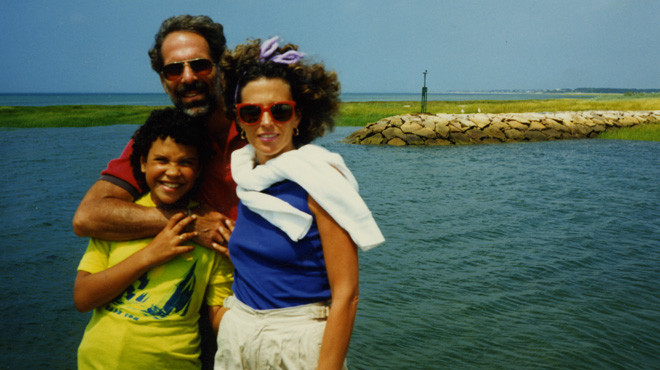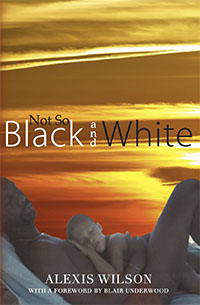Talking About Race – An EssayPosted in Articles, Asian Diaspora, Autobiography, Media Archive, United States on 2014-08-23 01:09Z by Steven |
Ms. Food Queen: Cooking Across Difference
July 2014
In the Korean language, “heug–in sa ram” means “black person.” The word “heug” also means dirt. I realized this when I was in high school and confronted my mother about it. She bristled, and said that I was too sensitive. I looked to my father for back up, but he would provide none. Though he was African American and born in rural South Carolina, he never spoke of his experiences with prejudice or bias. I recall once on a visit home from college, hoping to inspire a conversation about the cultural and racial differences in his and my mother’s relationship, I asked him how he felt about being in an interracial marriage with a Korean woman. He replied, “What are you talking about? Your mama ain’t white.”
Growing up, we never talked about race– and it drove me crazy. From my perspective, our lives revolved around our identity, yet we never discussed what it meant to be black, Korean, or mixed. Among my mother’s Korean friends, co-workers and acquaintances, my brother and I were black. They were shocked at our taste for Korean food beyond mainstream kimchi and bulgogi; and equally astounded by my ability to speak Korean so well! Out of sheer ignorance, they excluded us from church activities meant only for “full-blooded” Korean parishioners, not realizing that they were replicating, in Jim Crow-like fashion, the racism of prior decades.
To black folks, we were mixed. Not quite African American, but brown enough to be included in social networks and friend groups that gave us a sense of community and belonging. Almost all of my friends were black or biracial. With several military bases nearby, mixed race children were not uncommon in our neighborhood. Yet our Korean heritage was still a subject of fascination. Why didn’t we own a grocery mart or dry cleaners? No. We don’t know Karate (and it’s Tae Kwon Do, thank-you-very-much). No. We don’t eat dogs and kimchee is not spoiled cabbage…
Read the entire article here.

